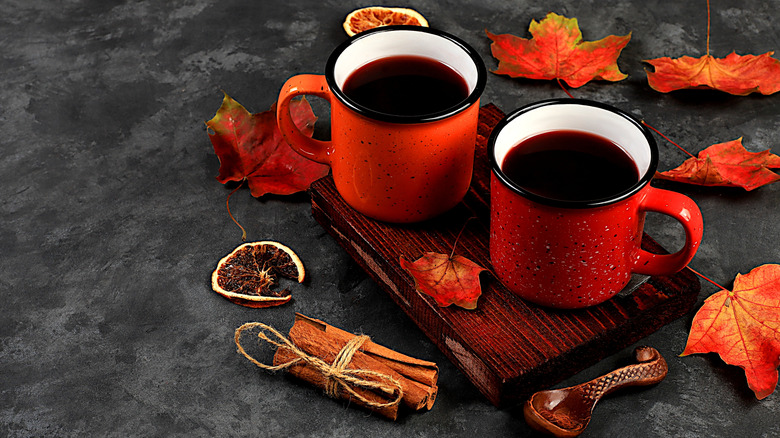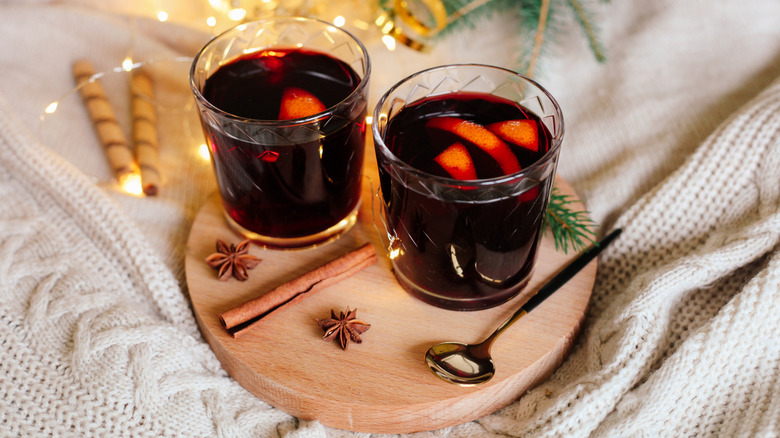The Best Wine To Use When Making Mulled Wine
We may receive a commission on purchases made from links.
The tradition of serving mulled wine during the holidays goes way back. The Romans and Greeks were boiling wine about 2,000 years ago, but hot and spiced wine became a Christmas staple in England during the 18th century. Charles Dickens even gives it a nod in "A Christmas Carol." If you're making mulled wine at home, you typically add spices like cinnamon or cloves, alongside orange slices and often honey or brandy (you can use port and Seville oranges to recreate the "Smoking Bishop" mulled wine from Dickens' story). Making mulled wine can be tricky, though, since red wine is so broad of an ingredient. What sort of wine should you use?
It's good to buy especially fruity-tasting wines to pair with the fruit you're adding, and this can include a merlot or cherry-accented grenache. Dry and less sweet wines like a malbec are great because they don't have much sugar that could overpower the mulled wine once it's done. A heavier, full-bodied wine like a zinfandel or cabernet sauvignon also works well, although keep in mind that full-bodied means a higher ABV (alcohol by volume) if you're adding brandy. That said, there isn't a hard rule, and you should consider what foods you're pairing with the mulled wine.
Mulled wine isn't pricey
You'll often hear folks say that you shouldn't use fancy, expensive wines for mulling, and you want slightly cheaper wines instead. After all, you're adding all these other spices that would conceal the more subtle notes of a fancy, expensive vintage (and you're even diluting it if you're adding brandy). This is one of the many ways you can save money on wine. However, others say you should buy the same quality of wine you're used to because adding extra flavors won't cover up the wine's flavor completely. There's some personal preference to the type of wine you use: Do you strongly dislike bottom-shelf wine, or do you think it'd be fine if it's dressed up and spiced?
If you want mulled wine that's slightly different, you can whip up a Swedish version called glögg, which also includes almonds and raisins — for that, you might choose a pinot noir, which pairs well with nuts. Some recipes also mix apple cider with alcohol, in which case you definitely want a drier wine because apple cider is often sweet enough on its own. If you add fruit juice to your mulled wine, then similarly dry wines are a smart choice, but now it becomes much closer to hot sangria, which also uses wines that are fruity and cheaper than normal.

